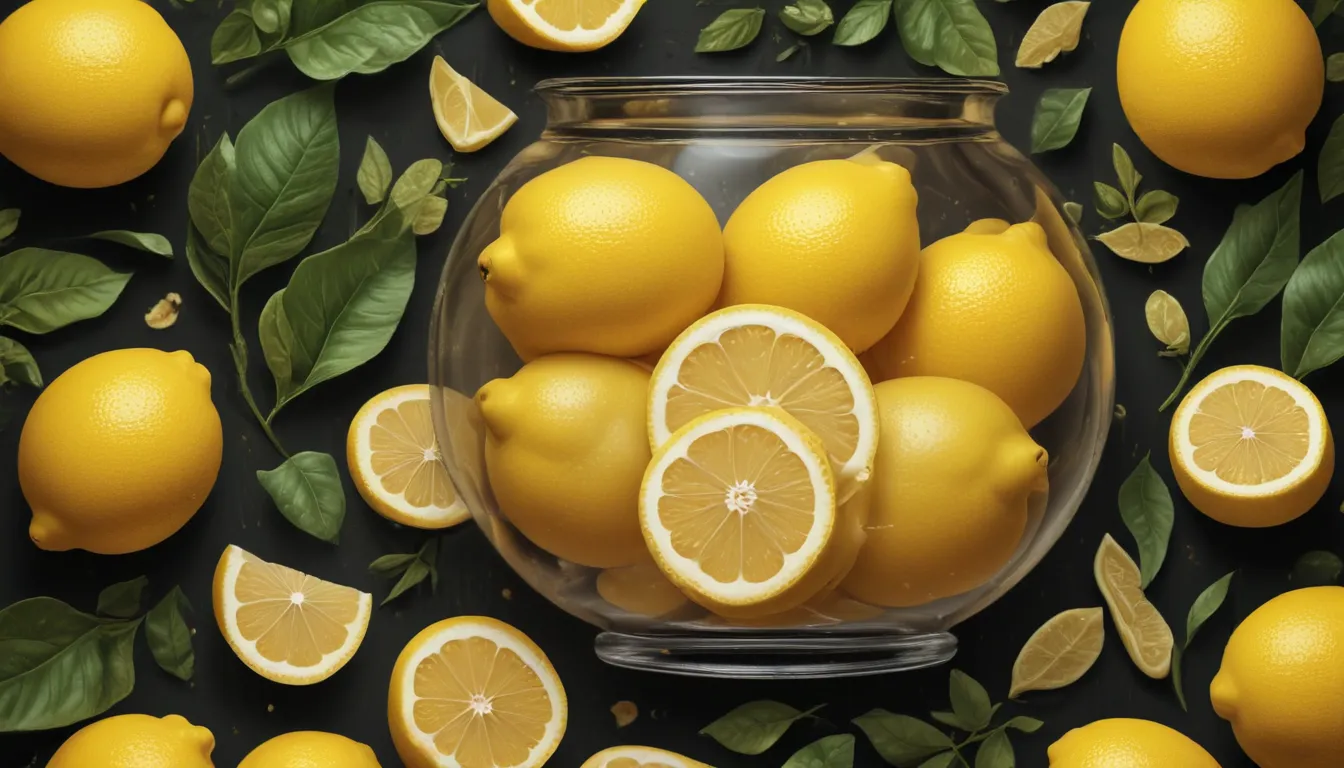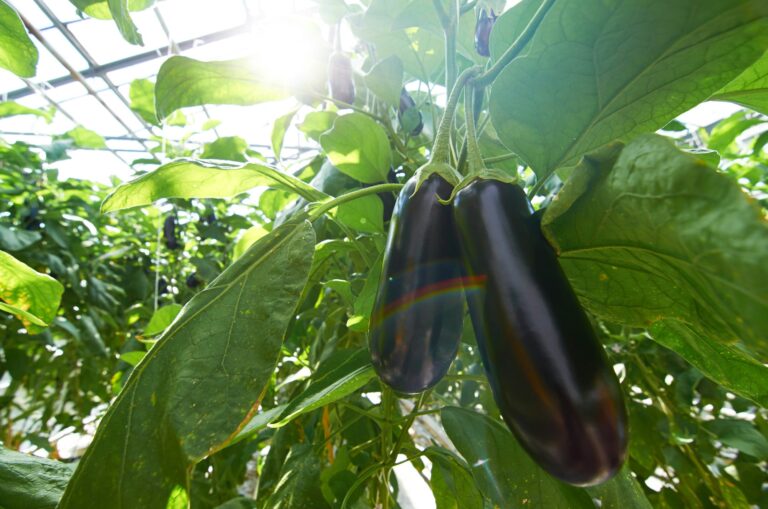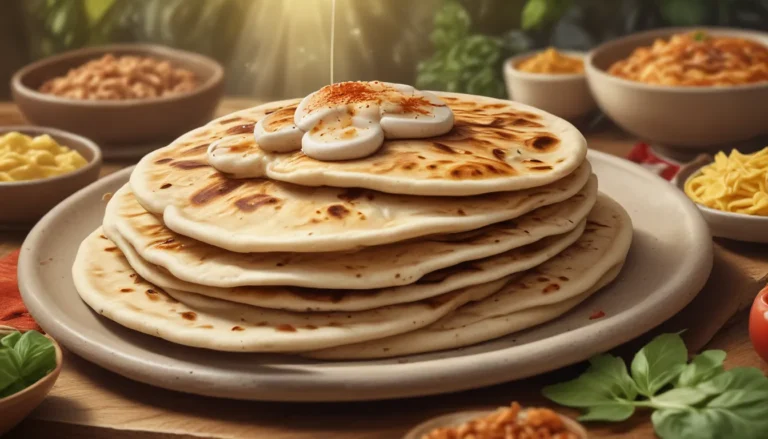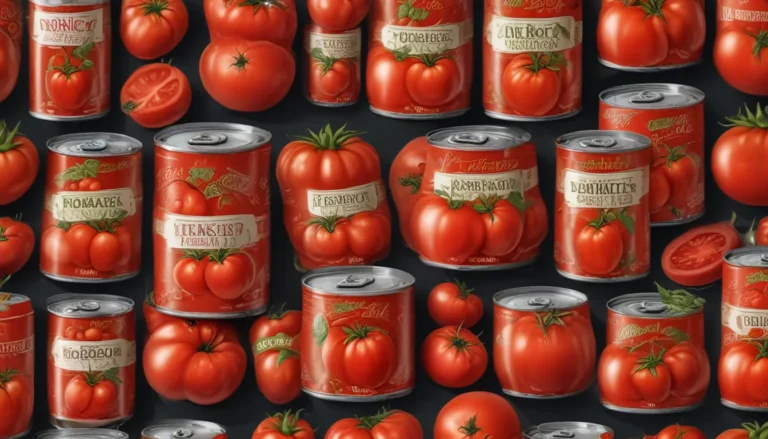The pictures in our articles might not always show exactly what the text is talking about. We use these images to make the article more interesting and eye-catching. They are there to add to the text, but not to replace it or show every detail.
Are you ready to discover the tangy and intense flavor of preserved lemons? These flavorful gems are a staple in many cuisines around the world, adding a burst of brightness to a wide range of dishes. Join us as we explore 20 fascinating facts about preserved lemons, from their origins and culinary uses to their health benefits and storage tips. Let's dive in and unlock the delicious world of preserved lemons!
The Origins and Traditional Preservation Method
Preserved lemons, also known as lemon pickle or lemon confit, have a rich history dating back to ancient times in the Middle East and North Africa. The process of preserving lemons involves packing them in salt and their own juices, creating a unique tangy flavor and tender texture.
Versatility in Culinary Delights
Preserved lemons add a burst of bright citrus flavor to a variety of dishes, from salads and tagines to soups and cocktails. Their unique flavor profile balances intense tartness with a slightly sweet, salty, and umami taste, enhancing the overall taste of your dishes.
Health Benefits and Nutritional Value
Rich in nutrients, preserved lemons retain many of the health benefits of fresh lemons, including high levels of vitamin C, antioxidants, and fiber. In traditional medicine, preserved lemons are believed to aid digestion, boost the immune system, and provide relief from common ailments like sore throat and indigestion.
A Natural Preservation Method and Gourmet Ingredient
Preserved lemons serve as a natural way to extend the shelf life of lemons without the need for artificial preservatives or additives. They are a favorite among chefs worldwide for their unique flavor and ability to elevate dishes with vibrant citrusy notes.
DIY Preserved Lemon and Variations
Many home cooks enjoy making their own preserved lemons, which requires minimal ingredients and provides the satisfaction of creating a homemade pantry staple. While traditional preserved lemons are made with salt, variations often include additional spices and herbs such as bay leaves, cinnamon, or cloves for added depth of flavor.
Culinary Uses and Pairings
Whether sliced or diced, preserved lemons bring a tangy kick to salads, enhancing the flavor profiles and providing a unique contrast to fresh greens and vegetables. They are considered a secret weapon by chefs and home cooks, transforming ordinary dishes into extraordinary culinary creations.
Intense Lemon Flavor and Global Popularity
Preserved lemons deliver a concentrated lemon flavor that is more robust and pronounced than fresh lemon juice, making them a prized ingredient in many recipes. They have gained popularity worldwide, transcending cultural boundaries and finding their way into the kitchens of food enthusiasts across the globe.
Creative Culinary Applications
Preserved lemons can be used in a variety of dishes, including gourmet condiments like chutneys, relishes, and vinaigrettes, adding a zesty and tangy touch. They are a perfect pairing with fish and seafood, complimenting the delicate taste of seafood dishes with their bold and bright flavor.
Unique Desserts and Mixology
Surprisingly, preserved lemons can also be used creatively in desserts like cakes, cookies, and tarts, offering a unique twist on traditional sweet treats. Bartenders have discovered the unique flavor profile of preserved lemons and have incorporated them into cocktails, infusing a refreshing citrusy taste in their creations.
Conclusion: Embrace the World of Preserved Lemons
Preserved lemons are a fascinating and versatile ingredient that has been utilized in various cuisines for centuries. From their tangy and intense flavor to their numerous health benefits, preserved lemons add a unique and distinct taste to a wide range of dishes. Whether you use them in savory recipes, marinades, dressings, or cocktails, preserved lemons can elevate the flavors and bring a burst of brightness to your culinary creations.
Frequently Asked Questions
-
What are preserved lemons? Preserved lemons are lemons that have been pickled and preserved in a mixture of salt and their own juices, resulting in a unique flavor profile that is tart, tangy, and slightly salty.
-
How do I use preserved lemons? Preserved lemons can be finely chopped and added to salads, tagines, stews, or roasted vegetables to add an extra depth of flavor.
-
Are preserved lemons good for you? Yes, preserved lemons are rich in vitamin C, antioxidants, and fiber, and can aid in digestion and support a healthy immune system.
-
Can I make my own preserved lemons? Absolutely! Making your own preserved lemons is a straightforward process that only requires lemons, salt, and a sterilized jar.
-
How long do preserved lemons last? When stored properly in a sterilized jar and refrigerated, preserved lemons can last for several months, with their flavor developing over time.
-
Can I substitute fresh lemons for preserved lemons in recipes? While fresh lemons can provide acidity, they cannot replicate the unique flavor profile of preserved lemons, so it's best to use preserved lemons for that distinct taste.
Explore the world of preserved lemons and discover the delightful range of flavors they can bring to your culinary creations. Whether you're a seasoned chef or a home cook looking to add a unique twist to your dishes, preserved lemons are sure to impress with their tangy and intense flavor. Dive into the world of preserved lemons and elevate your culinary experience today!






